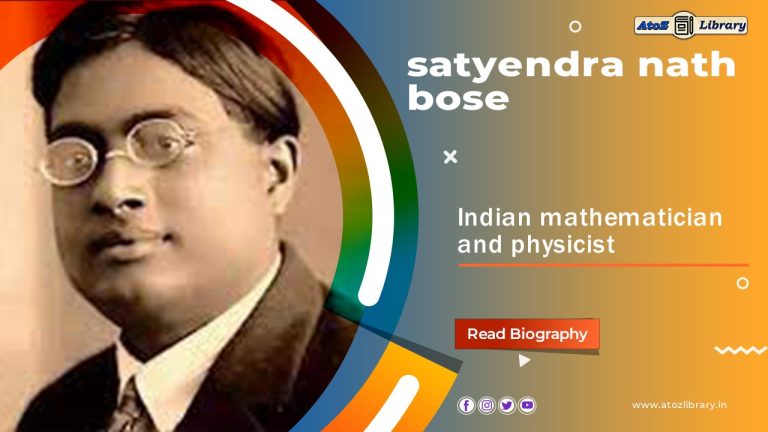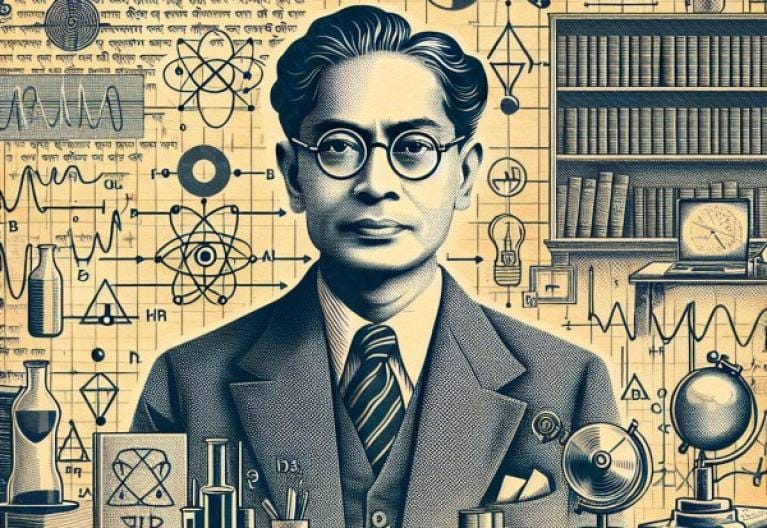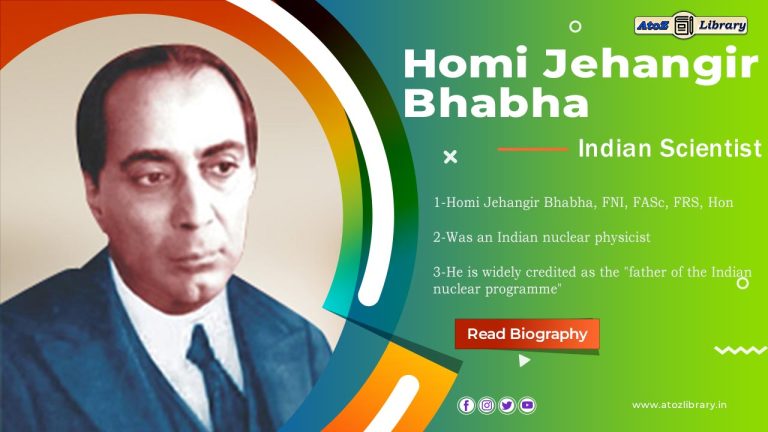Introduction
Keshab Chandra Sen (1838-1884) was a prominent 19th-century Indian leader, known for his role in the Brahmo Samaj. Born in Calcutta, he became a religious reformer, leading the Brahmo Samaj with a vision of a universal religion blending Hinduism and Christianity.
Sen was also a social activist, advocating for the abolition of caste distinctions and women’s rights. His “New Dispensation” philosophy aimed at fostering inclusivity. Despite admiration for his efforts, Sen faced criticism for his eclectic approach. This biography explores his impactful life, navigating through pivotal events and his lasting contributions to 19th-century Indian society.
Early Life of Keshab Chandra Sen:
Keshab Chandra Sen was born on November 19, 1838, in Calcutta, India. His family was deeply rooted in traditional Hindu culture, and his father was a well-respected trader. Growing up, Keshub experienced the rich cultural and religious traditions of Bengal.
As a child, Keshab showed a keen interest in learning. His early education was in traditional subjects like Sanskrit, but he also developed a fascination with spirituality and religious teachings. The diverse religious and cultural environment of Bengal during that time influenced his early thoughts and perceptions.
Despite facing challenges in his personal life, including the early loss of his mother, Keshab’s upbringing provided a foundation for his later exploration of religious and social ideas. Little did he know that these formative years would shape his journey towards becoming a prominent religious and social reformer.
Related post:- Dr. BR Ambedkar: Breaking Chains, Building a Legacy – An Engaging Biography-Babasaheb Ambedkar Life Story
Education and Spiritual Awakening:
In his early years, Keshab Chandra Sen was a curious learner. He attended school to study traditional subjects like Sanskrit, where he learned about ancient scriptures and texts. His teachers noticed his inquisitive mind and passion for knowledge.
As he continued his education, Keshab’s interest in spirituality deepened. He started exploring different religious ideas and philosophies, drawn to the spiritual diversity present in Bengal. It was during this time that he began to experience a profound spiritual awakening—a realization that there were various paths to understanding the divine.
Keshab’s spiritual journey led him to question established norms and seek a more inclusive understanding of religion. This period of exploration laid the foundation for his later involvement in the Brahmo Samaj, a movement focused on reforming and modernizing religious practices.
His education and spiritual awakening were crucial aspects of Keshab Chandra Sen’s early life, setting the stage for his future role as a leader in the realm of religious and social reform
Personal Life:
Keshab Chandra Sen’s personal life was marked by both joys and challenges. He was born into a loving family in Calcutta, India. His father was a respected trader, providing a stable foundation for the family.
However, Keshab faced early hardships with the loss of his mother. Despite this loss, he found support within his family and community. As he grew older, Keshub embraced family life himself. He got married and became a father, cherishing the bonds of family.
While dedicated to his public work, Keshab, like anyone else, faced the complexities of balancing personal and professional life. His personal experiences, both joyful and challenging, played a role in shaping his perspectives on social and spiritual matters.
Understanding Keshab Chandra Sen’s personal life gives us a glimpse into the person behind the public figure—a man who navigated the ordinary and extraordinary aspects of life with resilience and a sense of familial connection.
Entry into Brahmo Samaj:
Keshab Chandra Sen’s journey into the Brahmo Samaj was like stepping into a community that aimed to make positive changes in religious practices. The Brahmo Samaj was a group of people who wanted to reform and modernize traditional beliefs.
In Keshab’s case, he joined the Brahmo Samaj and became an active member. This decision marked a significant turning point in his life. The Brahmo Samaj was led by thinkers who believed in monotheism (the belief in one God) and wanted to discard rituals that they considered unnecessary.
Keshab was drawn to the ideals of the Brahmo Samaj, especially its focus on a more inclusive and rational approach to spirituality. Over time, he became not just a member but a prominent leader within the Brahmo Samaj, contributing his ideas to the movement’s philosophy.
Joining the Brahmo Samaj was like finding a community that shared his vision for a more enlightened and progressive form of religious practice. This step was instrumental in shaping Keshab Chandra Sen’s role as a reformer and leader.
Controversies and Debates:
As Keshab Chandra Sen became a leader in the Brahmo Samaj, he found himself in the midst of controversies and debates—intense discussions that sparked disagreement and differing opinions.
One major controversy revolved around his evolving views on spirituality. Some members of the Brahmo Samaj were uncomfortable with Keshab’s ideas, which sometimes included a synthesis of elements from various religions, including Christianity. This stirred debates within the community about the direction of the movement.
Keshab’s open-minded approach to incorporating diverse spiritual ideas led to disagreements, and some members felt that his views were straying too far from the original principles of the Brahmo Samaj. These debates were not just intellectual discussions but often passionate exchanges of ideas.
Despite the controversies, Keshab remained steadfast in his beliefs, emphasizing a broader and more inclusive understanding of spirituality. The debates within the Brahmo Samaj reflected the challenges of balancing tradition and innovation, and they shaped the course of Keshab Chandra Sen’s leadership within the movement.
Interfaith Perspectives:
Keshab Chandra Sen had a unique way of looking at different religions. He believed in something called “interfaith perspectives,” which means he saw value in ideas from various religions and wanted to bring them together.
Imagine it like having a big toolbox with different tools. Each religion, according to Keshab, had something valuable, like a useful tool. He thought that by combining these ideas, people could have a more complete and meaningful understanding of spirituality.
Keshab was particularly interested in connecting elements from Christianity with the Brahmo Samaj’s beliefs. It’s like taking ingredients from different recipes to create a new, delicious dish. However, not everyone agreed with this approach, and it caused some disagreements and discussions within the Brahmo Samaj.
In simple terms, Keshab Chandra Sen believed that there were good and helpful things in different religions, and he wanted to bring them together to create a more harmonious and enriched spiritual experience.
Social and Religious Reforms:
Keshab Chandra Sen was like a champion for making positive changes in how people approached their religious and social lives. He believed that certain traditions needed an upgrade to make society fairer and more compassionate.
In the Brahmo Samaj, Keshab worked towards improving social practices. He was against things that he thought were unfair or unkind, and he wanted people to treat each other with respect and equality.
Religiously, he encouraged a more thoughtful and open-minded approach. He wanted people to understand that the essence of spirituality is about love, kindness, and doing good things for others, rather than just following rituals.
Keshab’s reforms were like giving society a makeover, making it more inclusive, compassionate, and understanding. These changes were not always easy, and sometimes they sparked debates, but he believed they were essential for a better and more harmonious community.
Quotes and Philosophical Insights:
Keshab Chandra Sen had some really interesting things to say, kind of like wise advice that makes you think. Here are a couple of his ideas in simpler terms:
“Love is the Best Religion”:
Keshab believed that love is like a universal language that everyone can understand. It doesn’t matter what background or religion you come from; love is something that connects us all.
“Religion of Humanity”:
He thought that being kind and helpful to each other is the most important thing. So, he talked about a “religion of humanity,” meaning that treating others well is like a shared belief that everyone can follow.
“Unity in Diversity”:
Keshab liked the idea that even though we’re all different, we can still come together and learn from each other. It’s a bit like a team where each person brings something special, making the group stronger.
“Seek the Truth”:
He encouraged people to always search for the truth. It’s like being a detective, trying to find out what’s really important in life. Keshub believed that the truth can lead us to a better understanding of ourselves and the world around us.
“Service to Humanity”:
Keshab thought that helping others is a big part of life. He saw it as a way to connect with something greater than ourselves and make the world a better place.
Keshab’s quotes and ideas were like little guiding lights, showing people a positive and compassionate way to live.
Related post:- Radhakishan Damani: The Retail Mogul Who Transformed D-Mart’s Fortune
Significant Events and Milestones:
Keshab Chandra Sen had some big moments in his life, kind of like important chapters in a book. Here are a few of those special events and milestones in simpler terms:
Joining Brahmo Samaj:
One important moment was when Keshab joined the Brahmo Samaj. It’s like joining a team that wants to make positive changes in how people think about religion.
Becoming a Leader:
Over time, Keshab became a big leader in the Brahmo Samaj. It’s like going from being a player on the team to becoming the captain, guiding everyone towards a shared goal.
Controversies and Debates:
Keshab’s ideas sometimes caused disagreements in the Brahmo Samaj. It’s like when friends have different opinions. These debates were important moments that shaped how the Brahmo Samaj would move forward.
Interfaith Perspectives:
Keshab’s idea of combining ideas from different religions was a big deal. It’s like creating a new recipe by mixing ingredients from various cuisines to make something unique.
Social and Religious Reforms:
Keshab worked hard to change unfair practices and make society more caring. It’s like trying to make a school or a playground a better place for everyone.
Legacy and Influence:
After Keshab passed away, his ideas continued to inspire people. It’s like leaving behind a really good book that people still read and learn from even after many years.
These events and milestones are like the building blocks of Keshub Chandra Sen’s story, showing how he made a positive impact on the world.
Literary and Written Works:
Keshab Chandra Sen was a bit like a storyteller. He wrote and said many things to share his ideas and beliefs. Here are some of his important written works in simpler terms:
“Brahmo Dharma”:
This is like Keshab’s handbook of beliefs for the Brahmo Samaj. It’s a bit like a superhero’s guidebook that tells you what’s important and how to be a good person.
“Jesus Christ, the Messenger of Love”:
Keshab wrote a book about Jesus Christ, who he saw as a messenger of love. It’s like writing a letter to a friend to tell others about someone you think is really great.
Lectures and Speeches:
Keshab often spoke to groups of people, a bit like a teacher in a classroom. He shared his thoughts on love, spirituality, and making the world a better place.
New Dispensation:
Keshab introduced the idea of a “New Dispensation,” which is like saying, “Let’s start fresh and do things in a new and better way.” It’s like hitting the reset button.
Poetry and Hymns:
Keshab wrote poems and hymns, which are like songs that express his feelings about spirituality. It’s a bit like writing lyrics to a tune that everyone can sing together.
Through his writings, Keshab Chandra Sen used words like paint on a canvas, creating a picture of his vision for a kinder and more understanding world.
Public Reception and Legacy:
Related post:- Biography of Mark Zuckerberg: The Inspiring Co-founder Fuelling Facebook’s Triumph
Keshab Chandra Sen was a bit like a star. People noticed him, and his ideas had a big impact. Here’s a simpler take on how the public saw him and what he left behind:
Popularity and Influence:
Keshab became pretty famous because of his ideas. It’s like when a new song becomes really popular, and everyone starts humming the tune. People liked what he said about love, unity, and kindness.
Challenges and Support:
But being famous also brought challenges. Some people didn’t agree with all his ideas, and there were debates. It’s like when fans of a team argue about the best player. Despite this, many supported Keshab’s vision for a better world.
Legacy of Love and Unity:
Even after Keshab passed away, his ideas lived on. It’s a bit like planting a tree whose branches keep growing, providing shade for generations. His legacy is the positive impact he had on how people think about love, unity, and spirituality.
Continued Inspiration:
People still read Keshab’s writings today. It’s like reading a favorite book that never gets old. His ideas continue to inspire others to be kind, open-minded, and caring.
Brahmo Samaj’s Evolution:
The Brahmo Samaj, the community he was a big part of, continued to evolve. It’s like a river that keeps flowing, changing its course over time. Keshab’s contributions shaped the direction of the Brahmo Samaj.
In simple terms, Keshab Chandra Sen was like a positive force that left a lasting impact, making the world a bit brighter and more understanding.
Conclusion:
Keshab Chandra Sen’s life stands as a testament to the dynamic interplay between religious and social reform in 19th-century India. His leadership in the Brahmo Samaj, marked by a visionary blend of Hindu and Christian principles, showcased a commitment to universal spirituality.
Sen’s advocacy for social justice, gender equality, and the dismantling of caste barriers reflected his progressive ideals. While his “New Dispensation” philosophy sparked both admiration and criticism, Keshab Chandra Sen remains a pivotal figure in India’s history, leaving an enduring legacy as a trailblazer in the quest for spiritual and social transformation.






I do agree with all the concedpts you have presented on yur post.
They’re very convincing and will certainly work.
Nonetheless, the poosts are very brief for starters.
May just you please prolong tgem a little from next time?
Thank you for thhe post.